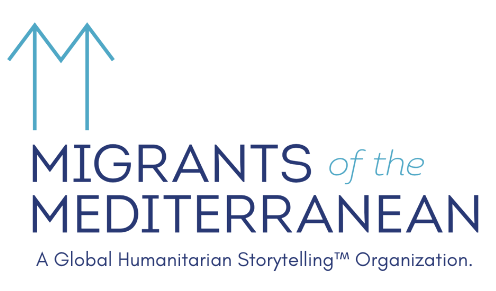Meet Amadou
©Pamela Kerpius/Migrants of the Mediterranean
by
Pamela Kerpius
Recorded:
8 April 2021
Published:
4 May 2021
Meet Amadou.
32 years old and from Dakar, Senegal.
Amadou requested his picture not be taken.
To reach Europe he crossed four countries: Senegal, Mauritania, Western Sahara and Morocco.
His journey took about two and a half months.
Amadou left Senegal by bus on a two-day trip to the Mauritanian border, then transferred to a second bus traveling through Western Sahara until he reached the Moroccan border.
At the border, there were police checks and deportations. He was lucky, he said, that he wasn’t caught himself, but met a man who took him to where he could hide out in his home. From here, he traveled to Rabat, the capitol city, but by an alternate route that was less traveled so as not to be seen and caught by police.
Amadou had contact with a friend of his mother’s, who had him stay in her home, where he remained for one month and three days, in hiding. He could only go out at night, otherwise it was too dangerous that he’d be seen and robbed of his money or phone, or both.
He was then in contact with a man who would ultimately be the one who brought him across the sea. Amadou stayed with him for about one month, also in hiding. The next move was to Tangiers, where he stayed in an abandoned house tucked away in a hillside forest that lay above the sea for about ten days.
There were more than one hundred people staying in the abandoned house – from Gambia, Nigeria, Ivory Coast, Guinea Bissau, and other African countries. There were both women and children among the community.
Daily, groups would go into the city below to buy food for their shared meals. They purchased basics like rice, pasta, milk and bread. A neighboring man provided water to drink. Sometimes they paid for it, other times the man gave it to them for free.
The trafficker stayed with him and the others over the stay in Tangiers.
It was morning when the trafficker began to call names off a list. About fifty or 60 people were called, one by one, Amadou said. They would leave that evening. A goat was sacrificed in a ceremony for good luck.
In the evening, two single-file lines were established, one each for men and women. For Amadou’s part, he was running in the rain to reach the coast and join the group. There were others among him, and about a half-hour in, his trafficker paid the Moroccan police to drive them the rest of the way to the beachside.
The police and about 10 people were pulled together, including Amadou, to inflate the boat. It took about fifteen to 20 minutes to complete.
Amadou crossed the Mediterranean Sea in a rubber dinghy with 56 people including women, one of whom was pregnant, and children at 11:00p.m. He was at sea for 17 hours before he saw a plane fly overhead. He saw a Spanish ship thereafter, the Spanish Coast Guard, he believes. The rescue operation dropped down orange boats to retrieve him and the other passengers. Everyone survived.
Amadou landed in Spain in September 2018, it was a Saturday. We met Amadou, now 35, in Middelburg, Netherlands on 8 April 2021 where we recorded his story.
Amadou is an amazing human being.

